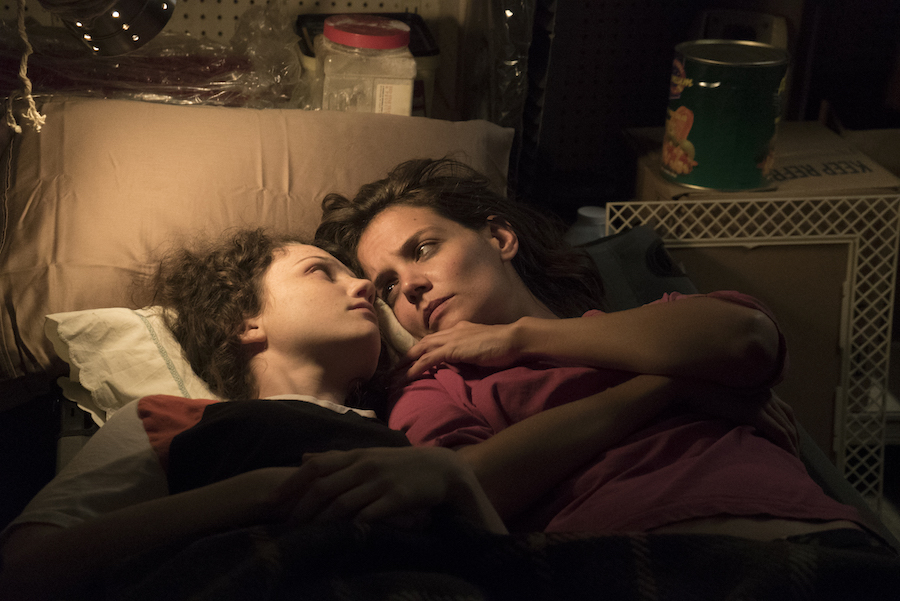‘All We Had’ Here’s the problem with Rotten Tomatoes (or one of many): It doesn’t acknowledge nuance. That’s a shame for any movie, but particularly a movie like “All We Had,” Katie Holmes’ feature directorial debut. It’s very far from a perfect movie, but it shows real promise, and has lots within it to recommend. It’s unique as both a coming-of-age saga and a mother-daughter character study. It’s also deeply, deeply flawed, so much that we can’t give it a passing grade. As it turns, not many can. And so its low-to-moderate Tomato-meter will play like a thumb in the eye of a celebrity who tried to think outside her britches. It will seem like we’re punishing Katie Holmes, and the world is always a little harder on actresses who want to direct than we are on their male counterparts. (Just ask Angelina Jolie.) Still, Holmes does make a lot of rookie mistakes. One of them is the kind of earnest voiceover presumed to have died around Sundance ’96. The movie centers around Ruthie (Stefania LaVie Owen), a young teenager whose mother, Rita (Holmes), is perpetually down-and-out, enduring a vicious circle of bad jobs, bad decisions and bad boyfriends. The latest sends her and her daughter on the road. They dream of Boston. Instead, they’re forced to settle for a small town when their car breaks down. At first they try to grift a diner for food; when Rita screws that up, Ruthie helps her charm her way into a waitress job instead. RELATED: Interview: Katie Holmes talks becoming a director with “All We Had” What follows is like a grittier “Alice Doesn’t Live Here Anymore,” minus the resulting longtime sitcom. Though it’s still funny, at times. Holmes doesn’t wallow in misery but finds humor in Rita and Ruthie’s various predicaments. And it never settles into a fantasy. When Rita scores some money, it’s not a windfall; it’s just a credit card, which a giddy Rita uses like a blank check. Boyfriends keep coming, none of them much better than previous ones, and their entire existence is held together by a thread. When it’s good, Holmes nails a tone that’s not quite harrowing and not quite light. It’s honest and refuses to portray Rita as a victim. Even the famous actress’ permanently smeared eyeliner and bedhead feel lived-in, not just a celebrity dressing down. Holmes has given herself a meaty role, because few else presumably will, and she nails it, coming off like a rowdy teenager who hasn’t realized she’s deep into her 30s. “All We Had” is also an occasional mess, with too many montages clearly covering up material Holmes had to chuck when the first cut ran too long. (Poor Judy Greer scores a barn-storming first scene, as a neighbor when Rita buys a foreclosed-on house, then vanishes, as if by magic.) As it winds into its third act, that precarious balance between despair and mild amusement spills into hysteria, including a bit with a gun and one nice supporting character abruptly turning to sexual abuse. This is not a solid film, and to say otherwise would be to play the yes man, but its good parts suggest an artist finding her own voice in public, and one that’s already singular. Holmes deserves honesty, but she also deserves to be told about what she’s doing right.
Director: Katie Holmes
Stars: Katie Holmes, Stefania LaVie Owen
Rating: NR
2 (out of 5) Globes
‘All We Had’ is a flawed but promising film directed by Katie Holmes

Gravitas Ventures
Follow Matt Prigge on Twitter @mattprigge


















